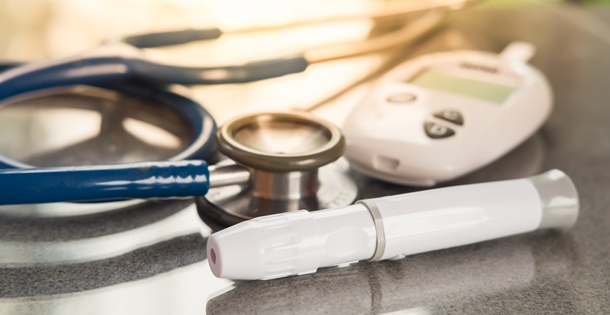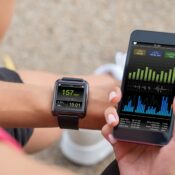Solving the Diabetes Puzzle
An international scientific consortium reports that at least six previously undetected genetic variants are involved in type 2 diabetes, boosting to 16 the total number of genetic risk factors associated with increased risk of the disease. The surprising discovery provides clues about what goes awry when diabetes develops, and may someday lead to new ways to treat or even prevent it. In the future, genetic testing may help doctors and their diabetic patients develop individualized treatment and lifestyle plans. Former director of the National Human Genome Research Institute Francis S. Collins, M.D., Ph.D., is a coauthor of the study conducted by the DIAbetes Genetics Replication And Meta-analysis (DIAGRAM) group.
Work by an Australian Ph.D. student revealing a new action of insulin may explain how it prompts body cells to absorb glucose, a question that has perplexed scientists since the 1920s discovery of the drug. Freddy Yip’s groundbreaking finding suggests that diabetes may develop when signals between insulin and the myo1c protein become blocked. Learning more about this mechanism may yield innovative therapies.
Not Diabetic? Two Reasons to Get Tested
People with high blood pressure should be screened for diabetes, even though they show no signs of it, according to recently updated federal guidelines. The U.S. Preventive Services Task Force confirmed that screening is “moderately certain” to be of substantial benefit for adults with a sustained blood pressure greater than 135/80. In a major change, the group dropped a general recommendation that adults with high blood levels of fats (hyperlipidemia) get screened for diabetes, citing a lack of evidence as to whether this is beneficial. Testing might still be warranted for those with additional cardiovascular risk factors, such as a family history of diabetes, they added. Another group who should watch their blood sugar levels are those undergoing heart surgery. In a Michigan study, nearly half of all heart surgery patients experienced blood sugar levels high enough to require temporary insulin treatment after their operation, despite never having diabetes.
Avoiding the “Ouch”
Here’s a new spin on the old adage that necessity is the mother of invention. When one Texas mother tired of the multiple insulin injections needed to treat her diabetes, she invented a simple and convenient alternative to the standard shots. The disposable i-port injection port, about the size of a quarter, minimizes the need to puncture the skin with each dose of medicine. When applying the adhesive device, an insertion needle guides a tiny, flexible tube under the skin. The insertion needle is then removed and the soft tube remains below the skin, allowing access into the underlying tissue. Up to 75 insulin doses from a syringe or insulin pen may be delivered through the i-port without puncturing the skin. Patton Medical Devices, the manufacturer of the device, is planning clinical trials to further support the medical need for the prescription-only device and to explore additional uses. For more information, visit i-port.com.
Drug Developments
An experimental insulin nasal spray may someday offer diabetics a fast and convenient option for mealtime glucose control. Phase II clinical testing shows that the ultra-rapid-acting intranasal insulin maintained safe glucose levels better than oral antidiabetes medicines and basal insulin. In addition, the nasal spray performed as well as NovoLog, a rapid-acting injectable insulin. For the study, blood glucose was measured 60 and 90 minutes after a meal. Data were reported at the 2008 Scientific Sessions meeting of the American Diabetes Association.
Become a Saturday Evening Post member and enjoy unlimited access. Subscribe now




Comments
Thanks so much for writing about the i-port®! The i-port® has been a great tool for my treatment and I hope it can help others that relate to the same struggle with their injections. If you need more information our website and Customer Care Team are great resources. You can call them or check out our new website to hear some great stories! Thanks for your support!